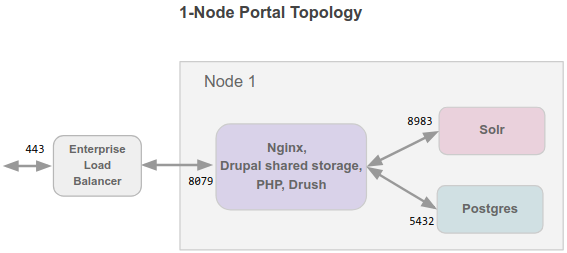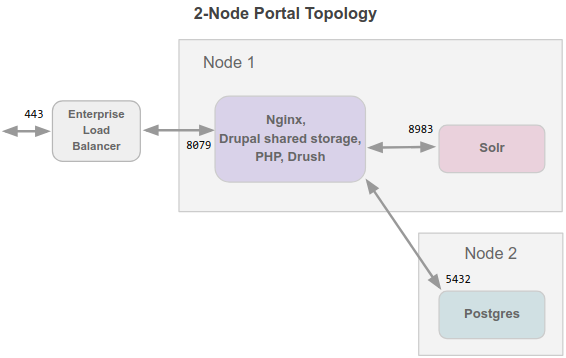Edge for Private Cloud v4.18.05
Apigee Developer Services portal (or simply, the portal) is a template portal for content and community management. It is based on the open source Drupal project. The default portal setup provides the following services:
- Content management: Use the portal to create and manage:
- API documentation
- Forums
- Blog postings
- Testing: Use the portal to test APIs in real time using a built-in test console
- Community management: The portal manages:
- Manual or automatic user registration
- Moderation of user comments
Portal's Role-Based Access Control (RBAC) model controls the access to features on the portal. For example, you can enable controls to allow registered user to create forum posts, use test consoles, and so on.
This version of this document has details specific to version 4.18.05. Any references that are specific to previous versions are oversights and should be reported as bugs.
For more information, see What is a developer portal?
Supported network topologies
The portal components can be installed in the following configurations, or topologies:
- 1 node: All portal components (Drupal, Nginx, PHP, Soir) installed on a single machine with Postgres.
- 2 nodes: All portal components on one machine; Postgres on the second machine
The following images show the supported topologies:
1 Node
Figure 1 shows a 1-node portal topology in which all portal components are on a single machine:

2 Nodes
Figure 2 shows a 2-node portal topology in which Postgres is on a separate machine from the rest of the portal components:

Note that:
- These topologies are the only topologies supported by Apigee. If you use a different network topology, Apigee might not be able to support it. Contact your account manager or Apigee Edge Support if you require a custom solution.
- On a new install of 4.18.05, the installation script installs Postgres and Nginx.
- On an update to 4.18.05 from an install that uses Postgres and Nginx, the installation script updates Postgres and Nginx.
- On an update to 4.18.05 from an install that uses MySQL/MariaDB/Apache, you must first convert your installation to Postgres/Nginx before you can update to 4.18.05. For more information, see Convert a tar-based portal to an RPM-based portal.
In this figure, the Public core contains the components that are publicly accessible. The Private core contains components that are not publicly accessible.
| Component | Description | Installed by |
|---|---|---|
|
ELB |
An Enterprise Load Balancer (ELB). |
Your network provider. For example, both Amazon and Rackspace provide Enterprise load balancers for use with their instances. |
| Nginx 1.10.1 | The Nginx web server used for installations of 4.18.05. | Apigee |
|
Postgres 9.6 |
The database used by Drupal for new installations of 4.18.05. |
Apigee, or connect to an existing installation. If you want to connect to a remote Postgres installation, it must be version 9.6. |
|
Drupal shared storage |
The shared storage area used by Drupal for uploaded files, static scripts, and other information. |
Apigee |
|
Drush 6.2 |
The Drupal command line interface. |
Apigee |
|
PHP 7.0 |
Server-side scripting engine. |
Apigee |
|
Apache Solr |
The Drupal search server. Apache Solr uses the Apache Lucene search library. |
Apigee, but it is not enabled by default. Only enable it if you have a large amount of data on the portal. See Install the portal for instructions on enabling it. |
Access the Apigee community for your questions
The Apigee Community is a free resource where you can contact Apigee as well as other Apigee customers with questions, tips, and other issues. Before posting to the community, be sure to first search existing posts to see if your question has already been answered.
